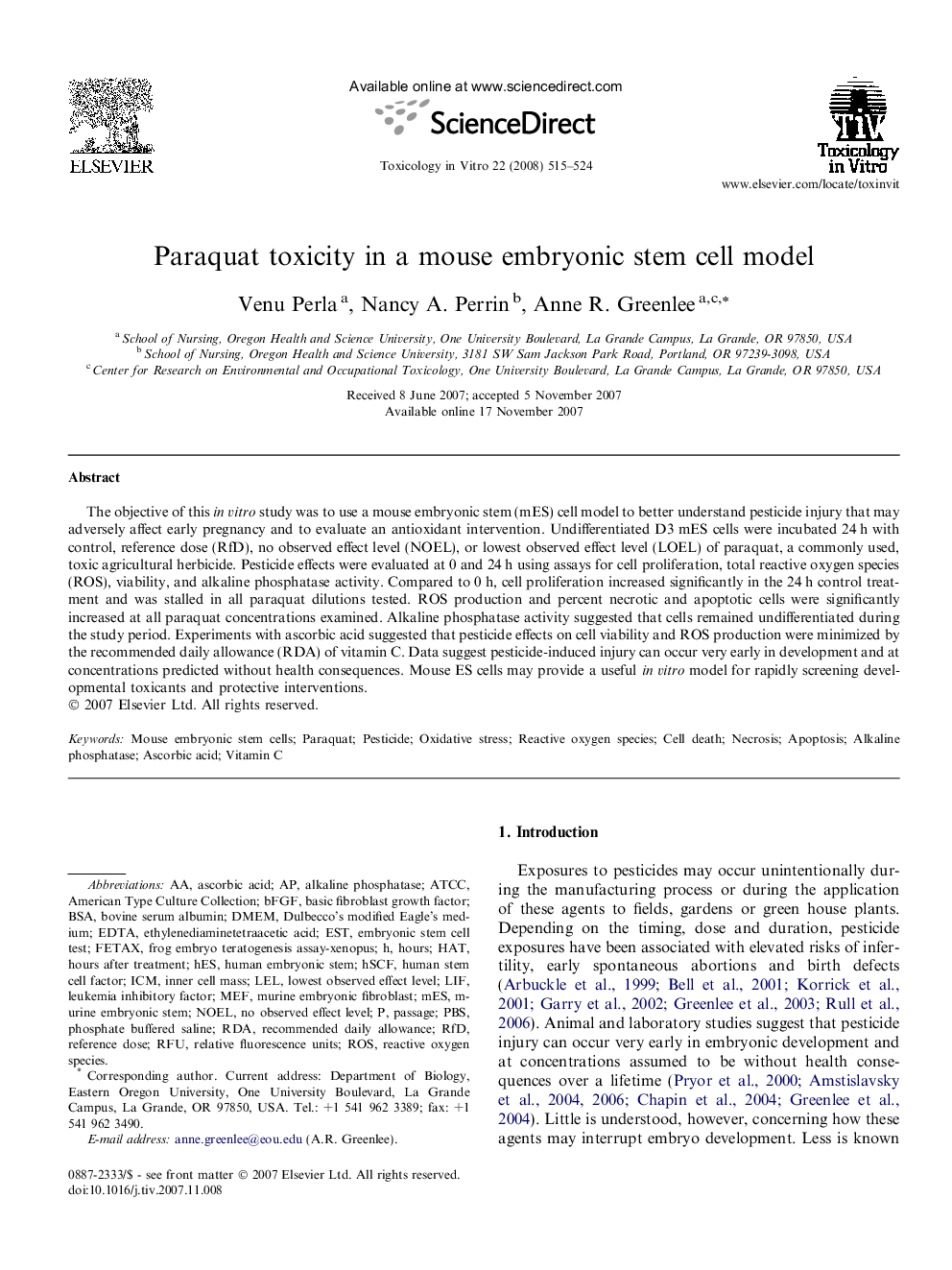| Article ID | Journal | Published Year | Pages | File Type |
|---|---|---|---|---|
| 2603510 | Toxicology in Vitro | 2008 | 10 Pages |
The objective of this in vitro study was to use a mouse embryonic stem (mES) cell model to better understand pesticide injury that may adversely affect early pregnancy and to evaluate an antioxidant intervention. Undifferentiated D3 mES cells were incubated 24 h with control, reference dose (RfD), no observed effect level (NOEL), or lowest observed effect level (LOEL) of paraquat, a commonly used, toxic agricultural herbicide. Pesticide effects were evaluated at 0 and 24 h using assays for cell proliferation, total reactive oxygen species (ROS), viability, and alkaline phosphatase activity. Compared to 0 h, cell proliferation increased significantly in the 24 h control treatment and was stalled in all paraquat dilutions tested. ROS production and percent necrotic and apoptotic cells were significantly increased at all paraquat concentrations examined. Alkaline phosphatase activity suggested that cells remained undifferentiated during the study period. Experiments with ascorbic acid suggested that pesticide effects on cell viability and ROS production were minimized by the recommended daily allowance (RDA) of vitamin C. Data suggest pesticide-induced injury can occur very early in development and at concentrations predicted without health consequences. Mouse ES cells may provide a useful in vitro model for rapidly screening developmental toxicants and protective interventions.
